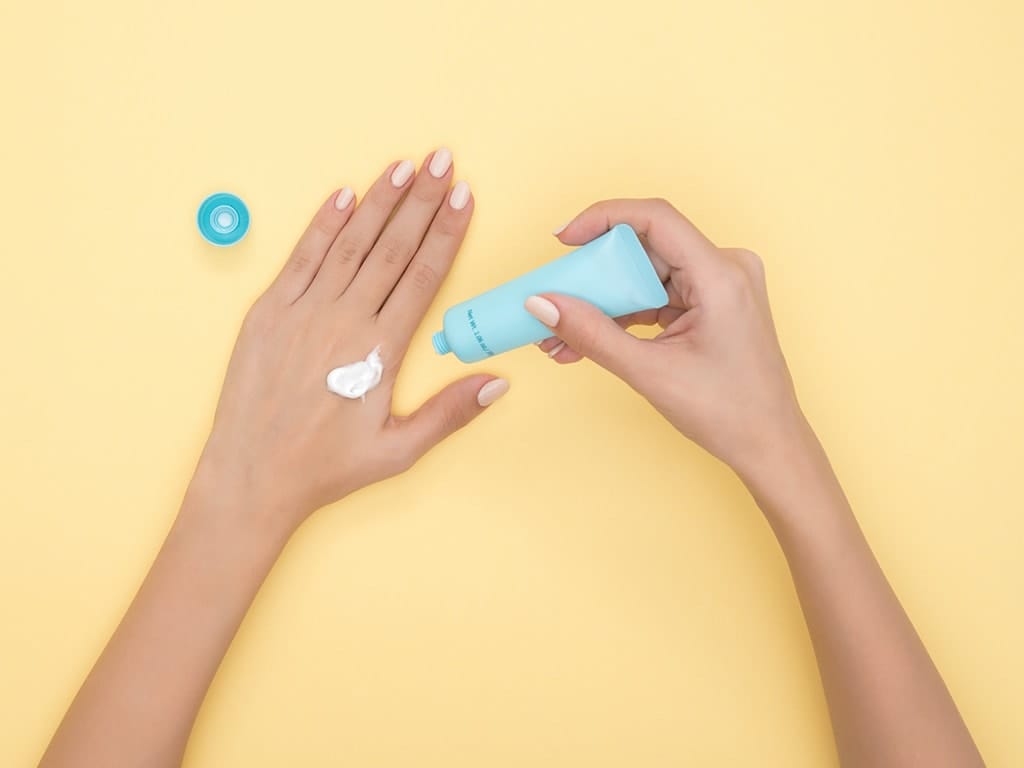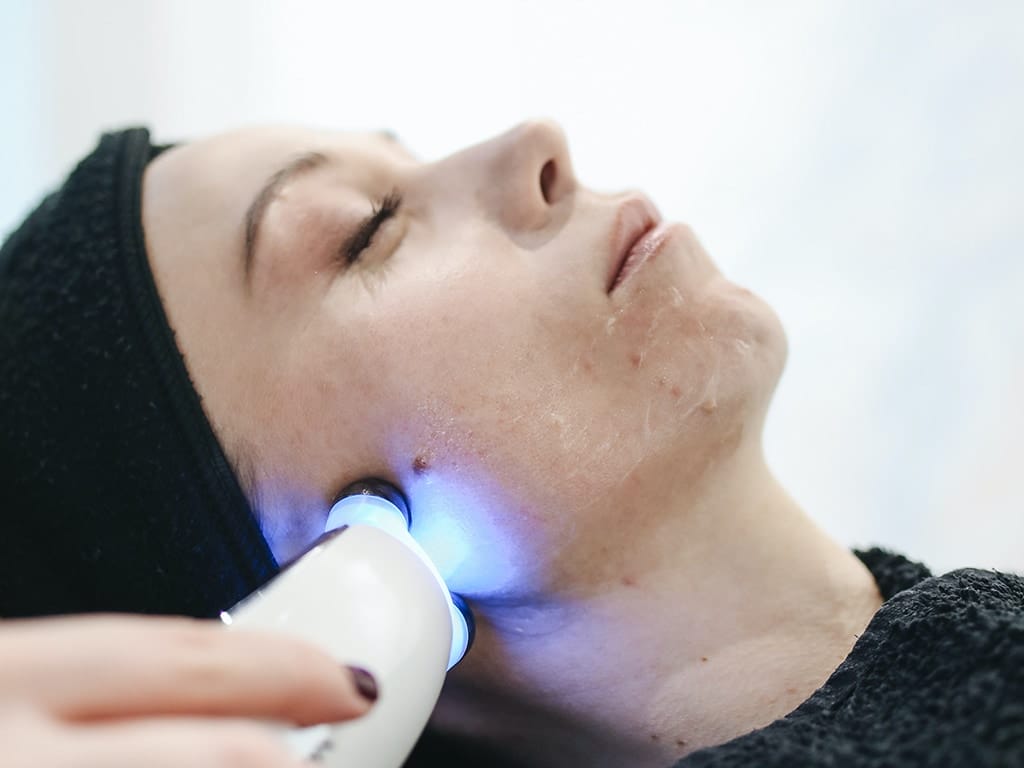How To Treat Skin Hyperpigmentation [Singapore Edition]
It’s one of the leading concerns as we grow old, and it’s not an easy problem to solve. Dark spots and skin pigmentation can’t just be solved with a nightly skincare routine and a barrage of brightening creams and face masks. Tropika Club finds out more about how to treat skin hyperpigmentation below.
Table of Contents
No Time to Read? Here’s a Snappy Summary of This Article
- It is a condition where some areas of the skin become darker than the surrounding skin due to excess melanin production. There are different types of hyperpigmentation, such as melasma, age spots, post-inflammatory hyperpigmentation, and freckles.
- The main causes are sun exposure, hormonal changes, inflammation, injury, irritation, and genetics. Some factors are avoidable, while others are not.
- The best way to prevent hyperpigmentation is to protect the skin from the sun by using sunscreen, wearing hats and sunglasses, and avoiding peak hours of UV radiation. Other preventive measures include avoiding skin irritants, treating skin conditions promptly, and maintaining a healthy lifestyle.
- There are various options for treating hyperpigmentation, depending on the type, severity, and location of the condition. Some common treatments include topical products that contain skin-lightening ingredients such as hydroquinone, azelaic acid, kojic acid, vitamin C, niacinamide, and retinoids. Other treatments include chemical peels, laser therapy, intense pulsed light therapy, microdermabrasion, and dermabrasion. Some home remedies that may help lighten hyperpigmentation include black tea water, avocado paste, aloe vera gel, and lemon juice.
- It is advisable to consult a dermatologist if the hyperpigmentation does not improve with OTC products or home remedies, or if it causes significant distress or affects one’s quality of life. A dermatologist can diagnose the type and cause of hyperpigmentation and prescribe appropriate treatments or procedures.
Read Also:
All You Need to Know About Skin Hyperpigmentation [for Males]
Why are Dark Spots and Skin Hyperpigmentation More Prevalent on Asian Skin?
It’s actually more common than you think. We all have cells (melanocytes) that produce melanin, a natural pigment in our skin. Melanin gives our skin its color, especially when we’re exposed to ultraviolet (UV) rays. It’s a defense mechanism against UV rays since it blocks the radiation from UV rays, preventing oxidative damage to the DNA of the melanocytes. This protects you from skin cancer too.
Your skin type and the ethnic group you belong to can affect the number of melanocytes on your skin. So that’s why our Asian skin condition is more prone to skin hyperpigmentation and discoloration compared to Caucasians since they usually have lighter skin tones. With our darker skin tone, there are more melanocytes that could produce excess melanin.
After melanin is produced, your body has the ability to spread out the melanin throughout your skin. But it’s not. a perfect process. Some melanin pigments may not be spread out properly and so they clump together, forming the dark spots and hyperpigmentation on you see on your skin. And as we age, the body’s ability to spread out the melanin weakens. So the excess accumulated melanin will stay in your skin unless you treat it.

Other Causes of Skin Hyperpigmentation
Changes in the Body’s Hormones – It’s commonly seen during pregnancy. You may experience skin hyperpigmentation as well if you’re taking birth control pills, hormonal contraception, or if you’re undergoing hormone replacement therapy.
Skin Irritation – Those with sensitive skin may know about this, especially when they take a chance on a new cosmetic or skincare product. Even hair products can irritate the skin and cause dark spots too.
Lesions on the Skin – Dark spots may appear after a cut, burn, or insect bite on the skin. Though some of these spots do fade in time.
Inflammation – Inflammation due to certain skin conditions, such as acne, eczema, and psoriasis, could cause dark spots to appear on your skin too.
Read Also:
7 Daily Habits that can Actually Make You Look Younger
Treating Skin Hyperpigmentation
Prevention is Key
In sunny Singapore, sunscreen should be one of your best friends. After all, exposure to the sun’s UV rays is one of the leading causes of skin hyperpigmentation. Wearing protective clothing when you’re out might just be the easiest step to prevent dark spots from forming.
Here’s another important tip: apply sunscreen every day, even if you’re indoors. If you’re out in the sun all day, re-apply sunscreen every two hours.
As for the type of sunscreen you should use, look for a broad-spectrum sunscreen with a sun protection factor (SPF) of 30 to 50. If you have skin disorders that will worsen after exposure to visible light, look for mineral sunscreens with iron oxide since it can block some visible light.

Skincare Products
You can reduce the appearance of pigmented skin with skin care products too. If you have chronic acne and eczema, apply anti-inflammatory skincare actives regularly to prevent inflammation.
Brightening serums are a great place to start since they are less potent than acids and retinoids. They are usually rich in antioxidants too, improving your skin’s radiance while reducing the damage by free radicals. You can use them even as you’re treating your acne. That way, you can treat your dark spots before it develops, avoiding skin hyperpigmentation as a result.
You could also get over-the-counter skin acids to exfoliate your skin and even out your skin tone as new skin cells replace the old ones. You can look for products with azelaic acid, lactic acid, citric acid, or vitamin C (in the form of l-ascorbic acid. If you have darker skin, you could benefit from products with glycolic acid or kojic acid.
Read Also:
Choosing between Microneedling and Peels
Chemical Peels
For a more potent treatment, try chemical peels to treat the dark spots on your skin. Chemical peels reduce hyperpigmentation by removing the epidermis layer of the skin. There are some that penetrate deeper, targeting the dermis layer of the skin. They typically use a higher concentration of acids, be it alpha hydroxy acids or beta hydroxy acids.
Although there are plenty of over-the-counter options now, it’s best to get a professional dermatologist to apply chemical peels. And, there may be side effects, such as irritation and blistering, as well.
Chemical peels aren’t the best solution if you’re the outdoorsy type, since it may cause your skin to be more sensitive to UV rays. To prevent your skin’s hyperpigmentation from worsening, apply sunscreen, as well as other UV protection, and take extra precautions for at least a week after your chemical peel.

Laser Peels
This treatment utilizes targeted beams of light to treat skin hyperpigmentation. It usually comes in two types of lasers: ablative lasers and non-ablative lasers. Ablative lasers are more powerful and it removes several layers of your skin.
On the other hand, non-ablative lasers usually only target the dermis later, promoting the growth of collagen and skin tightening. One of the more common non-ablative laser treatments you may know is intense pulse light therapy.
If you have darker skin, it’s best to seek professional advice before resorting to laser skin treatments, as you may be at a higher risk of hyperpigmentation and inflammation after the treatment.
Read Also:
All about Diamond Peel Microdermabrasion
Microdermabrasion
If you think your skin hyperpigmentation is on the outer layer of your skin, this could be an effective treatment for you. This treatment removes the epidermis layer of your skin with a handheld drill-like tool with an abrasive attachment. It may take more than one session to achieve your ideal complexion. Microdermabrasion usually works better for people with paler skin too.
During the allergic reaction, you may have the urge to rub your eyes and scratch the itch around your eyes. If you do scratch it, it could cause inflammation and swelling. You might be damaging the blood vessels as well, which causes the dark shadows in your under-eye circles.
Dermabrasion
This procedure is similar to microdermabrasion, but it also targets the deeper layers of your skin, such as the dermis. It may work faster than microdermabrasion, but it’s more effective for people with fairer skin. But if you have medium skin tones, you may develop further hyperpigmentation after the dermabrasion treatment, and it may lighten around 8 weeks.
Conclusion
We hope this guide has helped you understand more about hyperpigmentation and melasma, and how you can prevent and treat them effectively. At Tropika Club Magazine, we believe that everyone deserves to have clear and healthy skin, regardless of their skin color or condition. That’s why we support local businesses that offer quality products and services for your beauty and wellness needs. Whether you are looking for a skin-lightening cream, a chemical peel, or a laser treatment, you can find the best deals and discounts on our website. You can also read more articles on our magazine platform to learn about the latest trends and tips on all things Singapore. Remember, hyperpigmentation and melasma are not something to be ashamed of, but rather something to be proud of. They are part of your unique identity and story. However, if they bother you or affect your confidence, you have the right to seek help and improve your appearance. The most important thing is to love yourself and embrace the skin you’re in.

Frequently Asked Questions (FAQ)
Q: What is the difference between melasma and hyperpigmentation?
A: Melasma is a type of hyperpigmentation that usually affects larger areas of the skin and appears as dark patches with irregular borders. Melasma is more common in women, especially during pregnancy or when taking hormonal medications. Hyperpigmentation is a broader term that refers to any condition where the skin becomes darker than the surrounding skin due to excess melanin production. There are different types of hyperpigmentation, such as age spots, post-inflammatory hyperpigmentation, and freckles.
Q: What are the best products to treat hyperpigmentation?
A: The best products to treat hyperpigmentation are those that contain skin-lightening ingredients that can reduce melanin production and inflammation. Some of these ingredients are hydroquinone, azelaic acid, kojic acid, vitamin C, niacinamide, and retinoids. However, these products should be used with caution and under the guidance of a dermatologist, as they may cause side effects such as irritation, allergic reactions, or paradoxical darkening of the skin.
Q: What are the best procedures to treat melasma?
A: The best procedures to treat melasma are those that can target the excess pigment and blood vessels in the skin without causing too much damage or inflammation. Some of these procedures are chemical peels, laser therapy, intense pulsed light therapy, microdermabrasion, and dermabrasion. However, these procedures should be performed by a qualified professional and may require multiple sessions and maintenance treatments to achieve optimal results.
Q: How can I prevent hyperpigmentation and melasma from occurring or worsening?
A: The best way to prevent hyperpigmentation and melasma from occurring or worsening is to protect your skin from the sun and other factors that can trigger or aggravate them. You should use broad-spectrum sunscreen with at least SPF 30 every day and reapply every two hours. You should also wear hats, sunglasses, and protective clothing when outdoors. You should avoid hormonal medications that can cause melasma if possible, or consult your doctor for alternatives. You should also treat any underlying skin conditions that can cause post-inflammatory hyperpigmentation promptly and gently.
Q: When should I see a doctor for hyperpigmentation or melasma?
A: You should see a doctor for hyperpigmentation or melasma if you are not sure about the diagnosis, if the condition does not improve with over-the-counter products or home remedies, or if it causes significant distress or affects your quality of life. A doctor can help you identify the type and cause of your hyperpigmentation or melasma and prescribe appropriate treatments or procedures for your condition. A doctor can also monitor your progress and adjust your treatment plan as needed.

Have an Article to Suggest?
Tropika Club is always looking for new and exciting content to feature in their magazine and they value the input of our readers. If you have any noteworthy content or articles that you believe would be a great addition to Tropika Club’s magazine, we are open to suggestions and encourage you to reach out to us via email at [email protected]. By doing so, Tropika Club values your expertise and knowledge in the matter and appreciates your willingness to help. We will review your recommendations and update our list accordingly
Meanwhile, Check Out Tropika Club’s Ecosystem of Websites

Tropika Club Magazine – Tropika Club Magazine is a Singapore-based publication that features articles on a wide range of topics with a focus on local businesses and content for the region. The magazine emphasizes supporting local businesses through its #SupportLocal initiative, which includes coverage of everything from neighborhood hawker stalls to aesthetic clinics in town. In addition to highlighting local businesses, Tropika Club Magazine also covers a variety of local content, including beauty, lifestyle, places, eats, and what’s on in Singapore and the Asia Pacific region.
Tropika Club Deals – Tropika Club Deals is a leading online deals and voucher shopping site in Singapore, offering amazing discounts on beauty, wellness, and fitness products and services. It’s the perfect platform for customers who want to discover the best deals without having to commit to a specific appointment date and time. These deals are available at major beauty stores, facial salons, hair salons, and other brands in Singapore, with no minimum spend required. Choose from guaranteed discounted deals in the categories of hairstyling, hair removal, facial & aesthetics, body slimming, brows & lashes, nails & makeup, massage & spa or fitness & wellness. Tropika Club Deals is also ideal for customers who want to buy vouchers as gifts or to use for the future. So whether you’re looking to save money on your next haircut or want to treat yourself to a relaxing massage, Tropika Club Deals has got you covered with the best voucher and coupon deals in Singapore!




